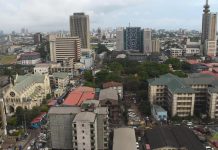Africa-Press – Gambia. Twenty civil society organizations (CSOs) have raised concerns over what they describe as unsustainable debt levels, structural inefficiencies, and limited accountability in the Executive’s proposed 2026 national budget.
The concerns were presented following a two-day workshop convened with support from the Center for Budget and Macroeconomic Transparency (CBMT) and the European Union (EU). The session aimed to review the draft budget and formulate recommendations for National Assembly Members (NAMs) ahead of budget approval. These recommendations have since been submitted to the Assembly.
According to the CSOs’ findings, debt servicing remains the single largest budget component, accounting for 30.95% of the Gambia Local Fund (GLF) budget and 22.67% of the overall national budget. The report warns that this has created an “unsustainable debt interest burden,” with the government increasingly borrowing to repay existing loans.
“Debt repayments are crowding out critical public investments in social services and infrastructure,” the CSOs noted.
The organizations urged the NAMs and the Finance and Public Accounts Committee (FPAC) to require the Ministry of Finance and Economic Affairs (MoFEA) to adopt more sustainable debt-management strategies. They recommended exploring alternative financing models to reduce dependence on domestic borrowing to service both domestic and external debt.
The submission further highlighted the dominance of recurrent expenditure in the proposed budget, which constitutes 90.11% of GLF spending, leaving only 9.89% (D4.3 billion) for development initiatives. According to the CSOs, this signals a government approach focused on maintaining existing operations—such as salaries, administration, and debt repayment—rather than investing in long-term growth.
They warned that this imbalance continues to hamper economic development, with persistent deficits in infrastructure across energy, transport, agriculture, and digital connectivity.
The CSOs recommended that the National Assembly legislate or adopt a policy to establish a development-to-recurrent expenditure ratio—such as 30% to 70%—for all ministries, departments, and agencies (MDAs). They also called for a functional review to identify redundancies and inefficiencies within recurrent budget lines, with any savings redirected to development projects.
They further noted that many government development projects remain costly to administer, despite MDAs already having substantial recurrent budgets meant to cover operating expenses. Cited examples include the University of The Gambia Campus Project (D180.32 million in operating costs), the WASIB Project (D300 million), and the Bertil Harding Highway Phase III expansion (D69.77 million).
“Examples include the University of the Gambia Campus Project (D180.32 million for operating costs), the WASIB Project (D300 million for operating costs), and the Widening of the Bertil Harding Phase III (D69.77 million for operating costs), among others,” the CSOs stated.
The report also criticized the use of the “operating costs” budget line as a means to avoid budget disaggregation, noting that entire project budgets are sometimes placed under this single line item. Projects such as the West African Coastal Resilience Investment Project (D971 million) and Malaria Control Services (D641.6 million) were highlighted as cases where most or all funds are lumped into operating costs.
“The operating costs budget line has also been used as a tool for avoiding budget disaggregation, with a whole project budget being lumped under it. Examples of projects allocating all their annual budget, or more than half, to operating costs include the West African Coastal Resilience Investment Project (D971 million) and Malaria Control Services (D641.6 million).”
The CSOs urged the legislature to curb excessive allocations to operating costs and to ensure a greater share of funds is directed to core project activities. They further called on NAMs to demand full budget disaggregation for all projects to enhance transparency and accountability.
Additionally, the CSOs expressed concern over revenue projections in the draft budget, noting a significant forecast increase in tax revenue alongside a steep anticipated decline in non-tax revenue. They questioned the credibility of these projections and warned about the risks of increasing reliance on tax revenue.
They recommended that NAMs require MoFEA or the Gambia Revenue Authority (GRA) to present the detailed assumptions and policy measures underpinning the projected tax revenue surge, and to explain the expected fall in non-tax revenue.
Other issues raised in the report include the underreporting of project grants and external loans, the underreporting of non-tax revenues collected by MDAs, and unusually high allocations in certain recurrent budget lines.
For More News And Analysis About Gambia Follow Africa-Press






